#madeleine thien
Quote
Sound had a freedom that no thought could equal because a sound made no absolute claim on meaning. Any word, on the other hand, could be forced to signify its opposite.
Madeleine Thien, Do Not Say We Have Nothing
54 notes
·
View notes
Text
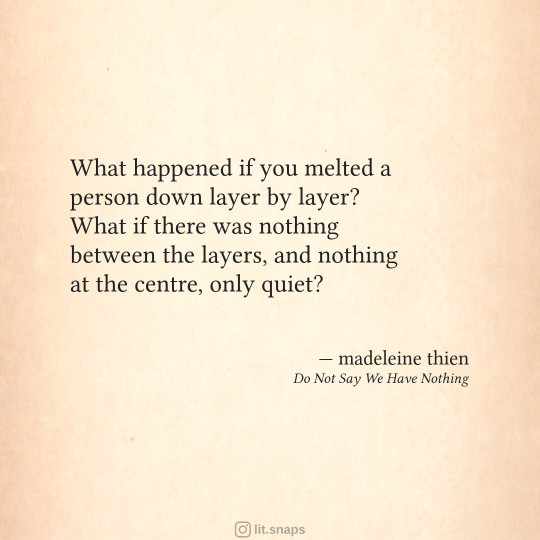
50 notes
·
View notes
Text
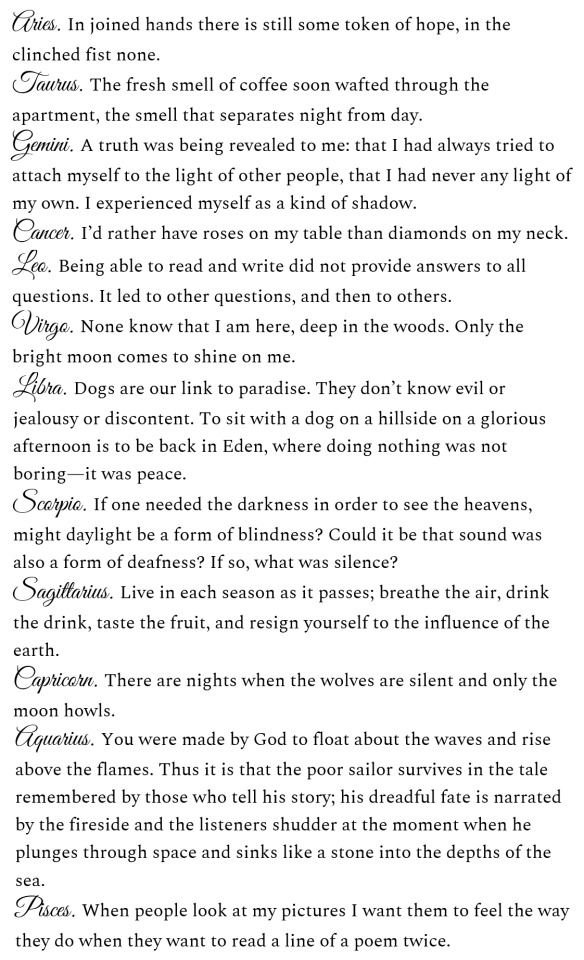
Victor Hugo. Haruki Murakami. Zadie Smith. Emma Goldman. Margaret Atwood. Wang Wei. Milan Kundera. Madeleine Thien. Henry David Thoreau. George Carlin. Alexandre Dumas. Robert Frank.
#literature#quotes#poetry#writeblr#writing prompt#star signs#zodiac signs#victor hugo#haruki murakami#zadie smith#emma goldman#margaret atwood#wang wei#milan kundera#madeleine thien#henry david thoreau#george carlin#alexandre dumas#robert frank
16 notes
·
View notes
Text
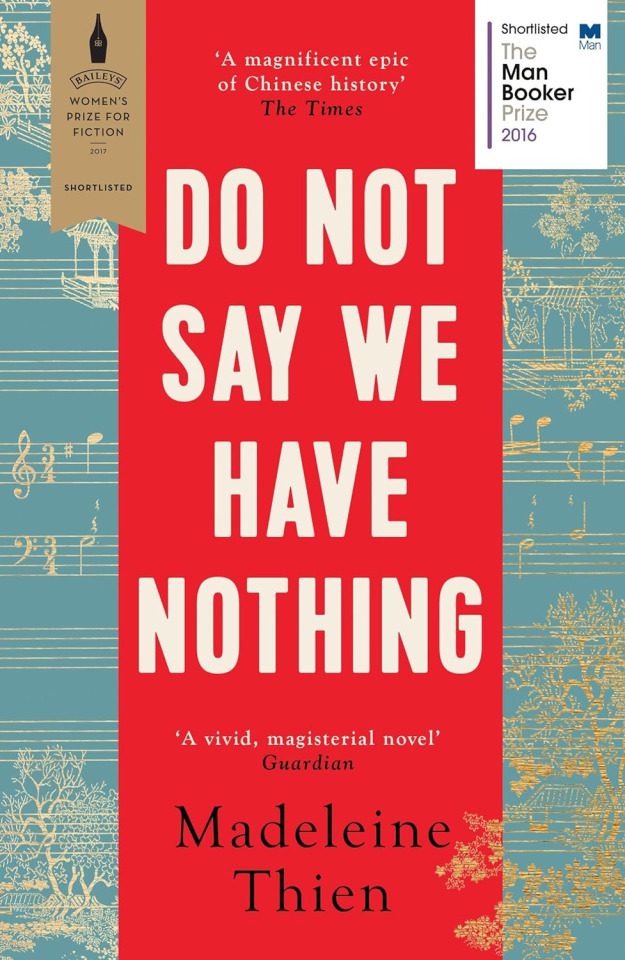
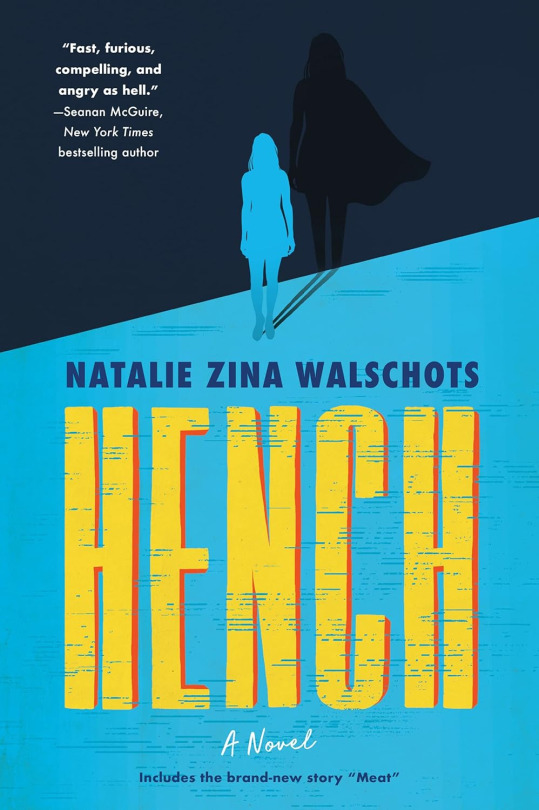
Do Not Say We Have Nothing Summary:
In Canada in 1991, ten-year-old Marie and her mother invite a guest into their home: a young woman who has fled China in the aftermath of the Tiananmen Square protests. Her name is Ai-Ming.
As her relationship with Marie deepens, Ai-Ming tells the story of her family in revolutionary China, from the crowded teahouses in the first days of Chairman Mao's ascent to the Shanghai Conservatory in the 1960s and the events leading to the Beijing demonstrations of 1989. It is a history of revolutionary idealism, music, and silence, in which three musicians, the shy and brilliant composer Sparrow, the violin prodigy Zhuli, and the enigmatic pianist Kai struggle during China's relentless Cultural Revolution to remain loyal to one another and to the music they have devoted their lives to. Forced to re-imagine their artistic and private selves, their fates reverberate through the years, with deep and lasting consequences for Ai-Ming - and for Marie.
Hench Summary:
When the top hero leaves the main character disabled she joins the top super VILLIAN and gets her revenge. Do people die? Sure but only the heroes who are out here doing far more damage than good.
#do not say we have nothing#madeleine thien#hench#natalie zina walschots#lgbt books#lgbt literature#queer books#queer literature#lgbtqia#poll
7 notes
·
View notes
Text
Do Not Say We Have Nothing by Madeleine Thien - Review
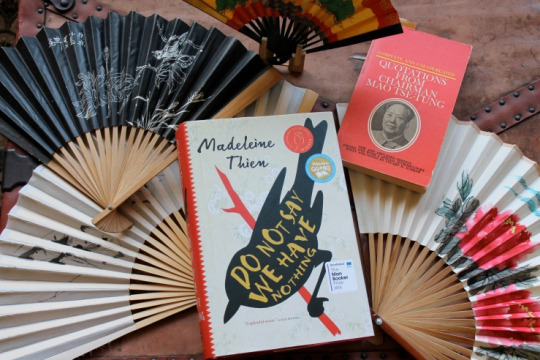
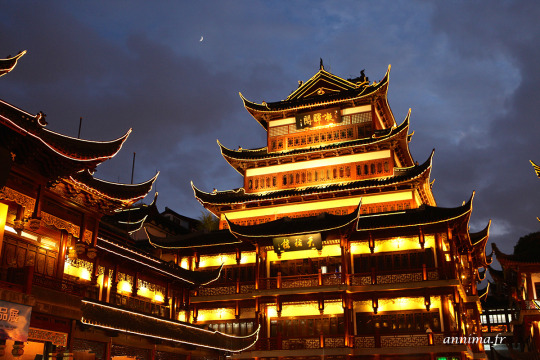
rating: ⭐⭐⭐⭐ (3.75)
Do Not Say We Have Nothing is a story about two families who despite being physically separated, are intimately connected to each other. It’s a book about how the political climate of a country can break or make a person, but that, in the end, we come back to the things that have always given us comfort.
It’s clear to me that the author appreciates music deeply, the way music is described in these pages is unreal. I had never seen music come alive this way before, music moves the narrative and mirrors our characters struggles not only within themselves but with the society they are inserted in.
The novel is set in two different timelines, the 50’s-60’s and the 90’s-2000’s. I’ve found really interesting how China’s political stances are explored in both timelines.
“How easy it was to mistake your brother for a traitor or your beloved for an enemy, to fear that you yourself were born in the wrong moment of history.”
This is a historical novel that sets to explore how Chairman Mao’s government affected the people of China and later on why people started rioting. I wish I had more knowledge about this period in China, maybe the novel would have made more sense to me and perhaps the language would not have seemed so dull at times. The author goes into great detail in how the lives of simple people would have been during that time. The famine, the torture, the “distribution of wealth” is heavily explored in this book.
It is an interesting topic however I think the language could’ve been more accessible and maybe less information would’ve led to a more cohesive story with less filler sentences.
At times it felt as if I was rereading the book due to how repetitive it got because the two timelines the novel explores are so interconnected and it’s basically history repeating itself.
One thing I think it was done well was how the characters were afraid to speak up, that seems the logical thing to do in an authoritarian regime. If the characters were suddenly speaking against the government freely it would’ve been incoherent given the time. However, the book addresses the issues without compromising the characters (the ones that aren’t tortured anyway) while still making a clear social commentary.
“I felt she saw into me, past every facade and flourish, and that the more she knew me, the more she loved me. I was too young, then, to know how lasting this kind of love is, how rarely it comes into one’s life, how difficult it is to accept oneself, let alone another. I carried this security—Ai-ming’s love, the love of an older sister—out of my childhood and into my adult life.”
One of the high points of the book is the relationships between the characters, the deep love they feel for each other, whether familiar, platonic or romantic. We see how these characters evolve in each other’s influence and how some people shape our lives.
There are a lot of characters in this book and maybe some people can’t connect with most of them because of their multitude, but I’d argue that is the point. In a communist China you’d have to hide yourself a lot of the times, not speak aloud and follow what the Party said. In a way I feel as if the characters’ inner monologue is exactly that, them convincing themselves and the reader that they are loyal to their country, which translates to being loyal to the Party, even in thoughts.
“Why is it that we can’t choose our own jobs? What right does the government have to keep a private file on me? (…) What illegal thoughts. The ones who should die…But actually, why should anyone’s thoughts be illegal?”
I think this book would benefit from a reread, it feels to me that if I knew what was going to happen I would’ve enjoyed my reading experience a bit more. I love how literature and music are so interconnected in the story and although it has a bit of filler it’s an enjoyable read (especially the second part).
#booklr#literature#book review#books & libraries#book quotes#books#reading#my reviews#book reccs#book recommendations#do not say we have nothing#madeleine thien#booker prize#chinese literature
4 notes
·
View notes
Text
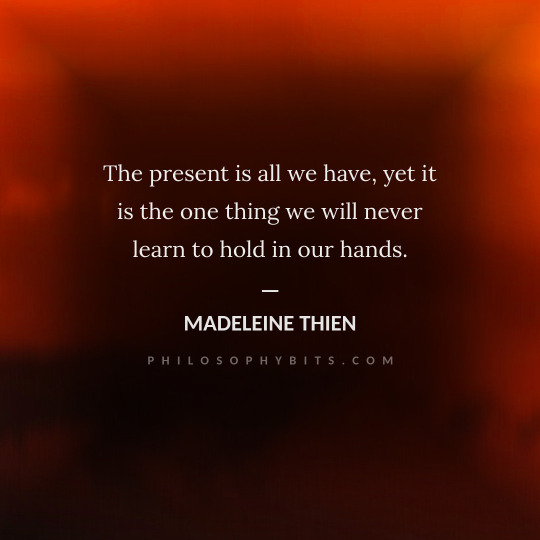
16 notes
·
View notes
Text
Review: Letters to a Writer of Color Anthology
Authors: Madeleine Thien, Tiphanie Yanique, Xiaolu GuoEditors: Deepa Anappara, Taymour SoomroPublisher: Random House TradeReleased: March 7, 2023Received: NetGalley
Goodreads | More Non-Fiction Reviews
Book Summary:
Letters to a Writer of Color is a collection of essays exploring literature, and its impact on sharing experiences. As such, it delves into the lives and stories of real people,…

View On WordPress
#Book#Book Review#Books#Deepa Anappara#Fiction#Letters to a Writer of Color#Letters to a Writer of Color Anthology#Literary#Literature#Madeleine Thien#Net Galley#NetGalley#non fiction revoew#Non-Fiction#Non-fiction review#NonFiction#NonFiction Review#Random House#Random House Trade#Review#Taymour Soomro#writers#writing#Xiaolu Guo
2 notes
·
View notes
Text
The only life that matters is in your mind. The only truth is the one that lives invisibly, that waits even after you close the book. Silence, too, is a kind of music. Silence will last.”
Madeleine Thien, Do Not Say We Have Nothing
2 notes
·
View notes
Text
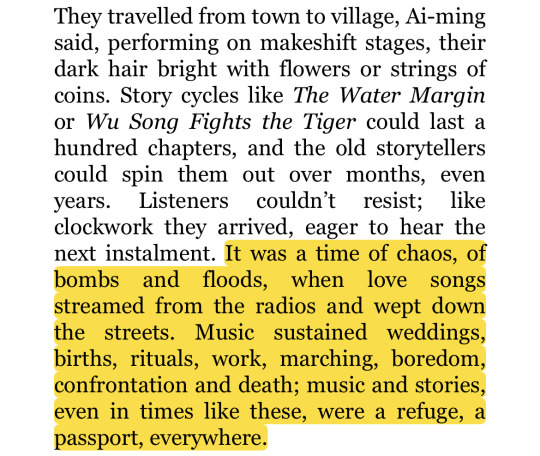
madeleine thien, do not say we have nothing
1 note
·
View note
Text
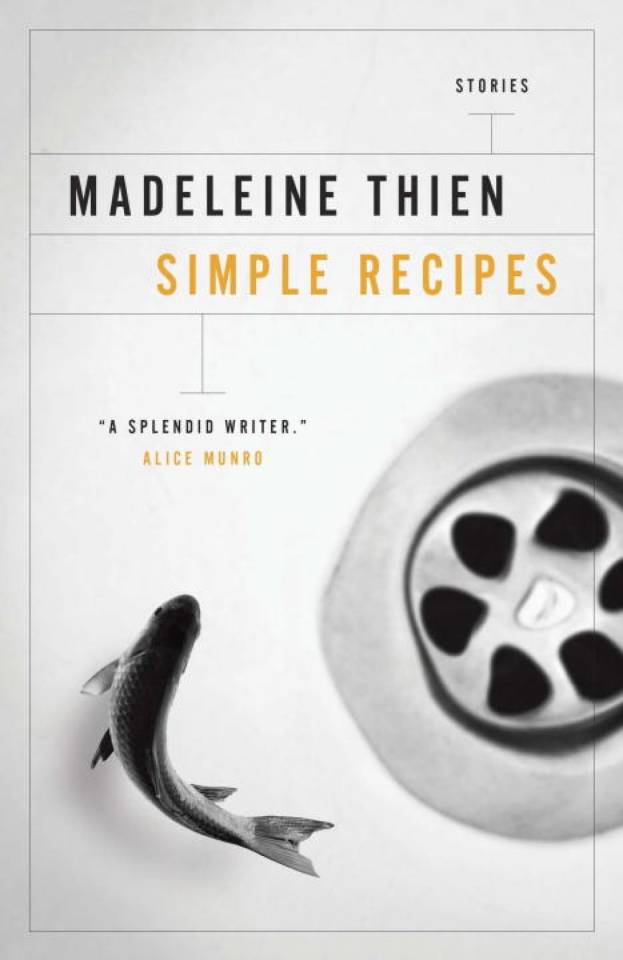
Loved this.
0 notes
Text
If some people say what is in their hearts and other people say what glides easily off the tongue, how can we talk to one another?
Madeleine Thien, Do Not Say We Have Nothing
0 notes
Quote
But for anything to be alive, it required motion: the current must run, the record must turn, a person must leave or find another path. Without movement or change, the world became nothing more than a stale copy, and this was the trouble with Ba's elegant calligraphy, his patient life, it was frozen in time.
Madeleine Thien, Do Not Say We Have Nothing
404 notes
·
View notes
Text
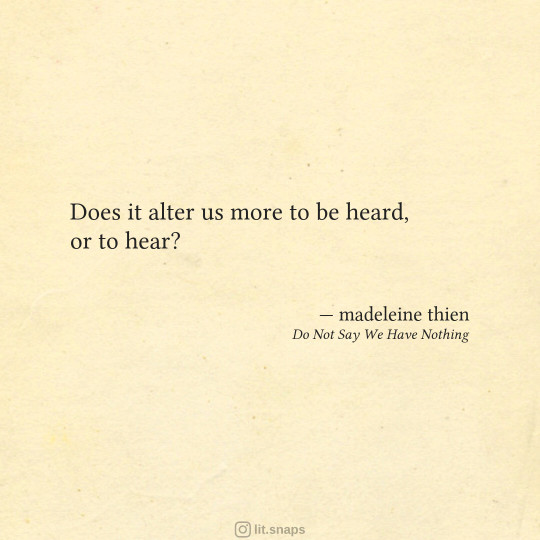
40 notes
·
View notes
Text
madeleine thien's do not say we have nothing is currently shifting something in my mind. this book is incredible. the depth of it, the structure, the overpowering influence of music...
0 notes
Text
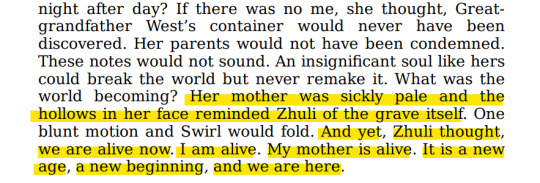
Do Not Say We Have Nothing by Madeleine Thien
#current read#litfic#literary fiction#historical fiction#booker prize#chinese literature#do not say we have nothing#madeleine thien
1 note
·
View note
Text
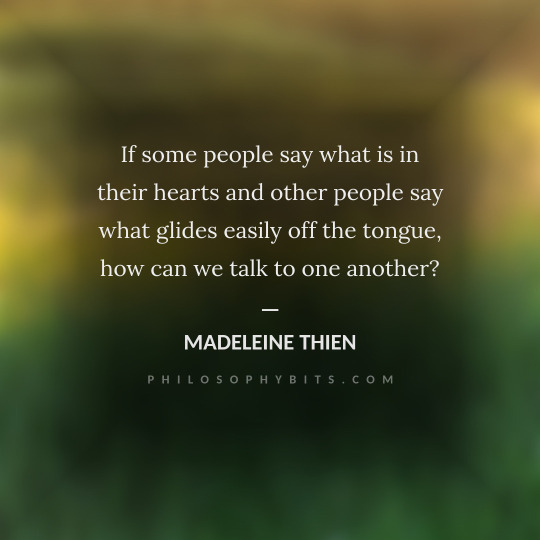
#philosophy#quotes#Madeleine Thien#Do Not Say We Have Nothing#Thien#speech#language#meaning#communication
10 notes
·
View notes